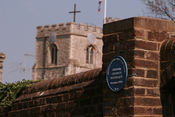The term Greeneland describes the world in which Greene's stories are set. It enables such dark themes as fraud, betrayal, corruption, idleness and failure to be explored widely in Twenty-One Stories.
Fraud is a theme which is discussed in the stories "A Chance for Mr. Lever", "Across the Bridge", "When Greek Meets Greek" and "Special Duties". In the former, Mr. Lever forges Davidson's signature because that meant the endorsement of the purchase. On the other hand, Mr. Calloway in "Across the Bridge" is an old English millionaire who became rich through illegal means. Furthermore, in the story "When Greek meets Greek" fraud is also present, being the main theme. Mr. Fennick and his niece Elisabeth Cross deceive Lord Driver with the idea of creating a fake school and Driver deceives them in return. Elisabeth and Frederick plan to deceive their relatives, being a product of the corrupt world. The story presents also a world-view of fraud when the narrator points out that "there were bigger frauds all round them", "their fraud was a small one by the world's standard, and a harmless one."
In "Special Duties", Miss Saunders deceives Mr. Ferraro for she is supposed to collect plenary indulgences for him but in fact, she does not.
Marital separation and betrayal can be included in the long list of maladies that infest Greeneland. In "A Chance for Mr. Lever" there is no marital separation and "they had been happy together for thirty-five years but, in spite of all this, he had once been "unfaithful to her". On the contrary, the married Catholic couple in "Special Duties" live in a state of separation within the same house. The marriage of Mr. and Mrs. Carter in "The Blue Film" and that of Mr. and Mrs. Baines in "The Basement Room" is problematic...



A true view of "Greeneland"
You have a good grasp of Greene's work and themes. The paper is well written and you express your analysis of the writer's theme fully and succinctly.
1 out of 1 people found this comment useful.